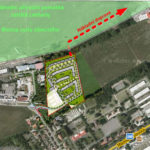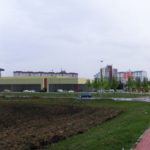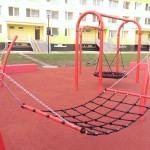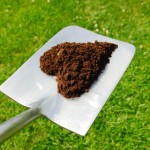The revitalization project of the former Avia housing estate is nearing completion. Letňany will already have new playgrounds, sidewalks, parking spaces and green areas in 2014, says representative Jan Mikulecký, Letňany. Continue reading “Jan Mikulecký: Letňany lentils will be in 2014”
Month: September 2020
Jan Mikulecký: Will trucks drive through the ground squirrel? The Letňany council said: NO!
 At its meeting on 19/4/2012, the Prague 18 Letňany District Council expressed a fundamental disagreement with the new exhibition in the vicinity of Letňany Airport. “At the end of March, the City of Prague launched an investigation procedure pursuant to Act 101/2001 Coll., In which the environmental impacts resulting from the construction of the Kbely Housing Complex, which should be built next year on the south side of the airport, representative of Letňany. Continue reading “Jan Mikulecký: Will trucks drive through the ground squirrel? The Letňany council said: NO!”
At its meeting on 19/4/2012, the Prague 18 Letňany District Council expressed a fundamental disagreement with the new exhibition in the vicinity of Letňany Airport. “At the end of March, the City of Prague launched an investigation procedure pursuant to Act 101/2001 Coll., In which the environmental impacts resulting from the construction of the Kbely Housing Complex, which should be built next year on the south side of the airport, representative of Letňany. Continue reading “Jan Mikulecký: Will trucks drive through the ground squirrel? The Letňany council said: NO!”
Jan Mikulecký: The expansion of Tesco will not affect the environment
 In the open space between the Kika department store and Tupolevova Street, the construction of a car showroom and McDonald’s restaurant will begin in the coming months. According to the statement of the Department of Environmental Protection of the City of Prague, the construction will not significantly affect the environment in Letňany if the measures proposed by the investor are implemented. Jan Mikulecký further stated about this. Continue reading “Jan Mikulecký: The expansion of Tesco will not affect the environment”
In the open space between the Kika department store and Tupolevova Street, the construction of a car showroom and McDonald’s restaurant will begin in the coming months. According to the statement of the Department of Environmental Protection of the City of Prague, the construction will not significantly affect the environment in Letňany if the measures proposed by the investor are implemented. Jan Mikulecký further stated about this. Continue reading “Jan Mikulecký: The expansion of Tesco will not affect the environment”
Letňany lentils again …
 … yes, Letňany lentils again. Everything has already been said and written, but somehow I can’t help myself … I have them under the windows every day and I walk around them, so again Letňanské lentilky. Continue reading “Letňany lentils again …”
… yes, Letňany lentils again. Everything has already been said and written, but somehow I can’t help myself … I have them under the windows every day and I walk around them, so again Letňanské lentilky. Continue reading “Letňany lentils again …”
Municipal compost – modern waste treatment
 Today’s society is consumer and this is reflected in the amount of municipal waste produced. As the consumption of each person is constantly growing, the amount of waste is also increasing in direct proportion. The volume of waste that ends up in landfills can be reduced by sorting, recycling and biological treatment. While colored containers for paper, glass and plastics are used for sorting and recycling on the streets, we still have considerable reserves in the field of biowaste. It is the area of biological treatment that enables the efficient processing of biodegradable waste (BRO), which accounts for almost half of the total volume of municipal waste. Continue reading “Municipal compost – modern waste treatment”
Today’s society is consumer and this is reflected in the amount of municipal waste produced. As the consumption of each person is constantly growing, the amount of waste is also increasing in direct proportion. The volume of waste that ends up in landfills can be reduced by sorting, recycling and biological treatment. While colored containers for paper, glass and plastics are used for sorting and recycling on the streets, we still have considerable reserves in the field of biowaste. It is the area of biological treatment that enables the efficient processing of biodegradable waste (BRO), which accounts for almost half of the total volume of municipal waste. Continue reading “Municipal compost – modern waste treatment”
